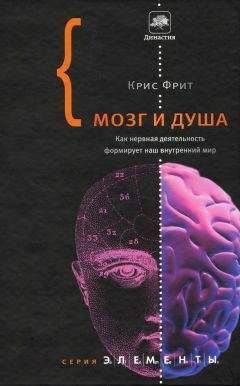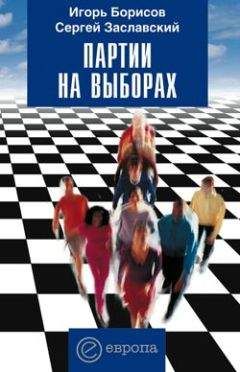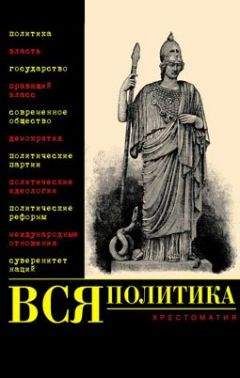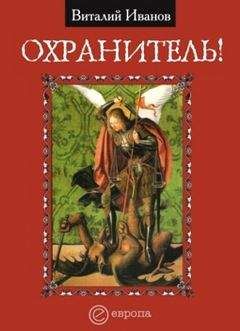Quite characteristically, reading the Gospels can provide teach-
ings clearly convergent with the method of understanding evil
derived from naturalistic investigations on its origin. At the
same time, we must foresee that the process of correction and
conformation will be laborious and time consuming, which
ultimately will probably prevent any major tumult.
Religion is an eternal phenomenon. A sometimes overly ac-
tive imagination would at first complement whatever esoteric
perception could not handle. Once civilization and its concur-
rent discipline of thought reaches a certain level of develop-
ment, a monotheistic idea tends to emerge, generally as a con-
viction of a certain mental elite. Such development in religious
thought can be considered a historical law rather than individ-
ual discovery by such people like Zarathustra or Socrates. The
march of religious thought through history constitutes an indis-
pensable factor of the formation of human consciousness.
Acceptance of religion’s basic truths opens to man a whole
field of possible cognition wherein his mind can search for the
truth. At that point, we also free ourselves of certain psycho-
logical impediments and gain a certain freedom of cognition in
areas accessible to naturalistic perception. Rediscovering the
true, ancient, religious values strengthens us, showing us the
meaning of life and history. It also facilitates our introspective
acceptance of phenomena within ourselves for which naturalis-
tic perception proves insufficient. Parallel to our self knowl-
edge, we also develop our ability to understand other people,
thanks to the acceptance of the existence of an analogous real-
ity within our neighbor.
These values become priceless whenever man is forced into
maximum mental effort and profound deliberations in action so
POLITICAL PONEROLOGY
269
as to avoid stumbling into evil, danger, or exceptional difficul-
ties. If there is no possibility of apprehending a situation fully,
but a way out must nevertheless be found for one’s self, family,
or nation, we are indeed fortunate if we can hear that silent
voice within saying “Don’t do this” or “trust me, do this”.
We could thus say that this cognition and faith simultane-
ously supporting our mind and multiplying our spiritual
strength constitute the sole basis for survival and resistance in
situations wherein a person or nation is threatened by the prod-
ucts of ponerogenesis, which cannot be measured in the catego-
ries of the natural world view. That is the opinion of many
righteous people. We cannot contradict the basic value of such
a conviction, but if it leads to contemptuous treatment of objec-
tive science in this area and reinforces the egotism of the natu-
ral world view, people holding this conviction are unaware of
the fact that they are no longer acting in good faith.
No major religion indicates the nature of the macrosocial
pathological phenomenon; therefore we cannot consider relig-
ious dictates as a specific basis for overcoming this great his-
torical disease. Religion is neither a specific serum nor an ae-
tiotropically active antibiotic with regard to the phenomenon of
pathocracy. Although it constitutes a regenerative factor for the
spiritual strength of individuals and societies, religious truth
does not contain the specific naturalistic knowledge which is
essential for understanding the pathology of the phenomenon,
and which is simultaneously a curative and a resistance gener-
ating factor for human personalities. Rather, religious faith and
the phenomenon of pathocracy are in fact at different levels of
reality, the latter being more earthy. That also explains why
there can be no true collision between religion and the pone-
rological knowledge about the macrosocial pathological phe-
nomenon.
If we based our societal defense and treatment with regard
to destructive influences of pathocracy only upon the truest
religious values, this would be reminiscent of curing an insuffi-
ciently comprehended disease exclusively by measures which
strengthen body and soul. Such general therapy may furnish
satisfactory results in many cases, but it will prove insufficient
270
PATHOCRACY AND RELIGION
in others. This macrosocial disease belongs to the latter cate-
gory.
The fact that this pathocratic phenomenon, which has
spread to the most wide-ranging scale in human history, dem-
onstrates hostility to any and all religion does not imply the
conclusion that it is the opposite of religion. This dependence
would be structured differently under other historical and con-
temporary conditions. In the light of historical data, it appears
obvious that religious systems have also succumbed to ponero-
genic processes and manifested the symptoms of a similar dis-
ease.117
The specific basis for healing our sick world, which is also a
curative factor for restoring full reasoning capabilities to the
human personality, must therefore be the kind of science which
renders the essence of the phenomenon evident and describes it
in sufficiently objective language. Resistance to the acceptance
of such knowledge is often justified by religious motivation; it
is largely caused by the egotism of the natural world view in its
traditional overrating of its values and fear of disintegration,
and it must be constructively overcome.
~~~
The pathocratic phenomenon has appeared many times in
history, feeding parasitically upon various social movements,
deforming their structures and ideologies in a characteristic
fashion. It must therefore have met with various religious sys-
tems and with a variety of historical and cultural backgrounds.
Two basic possibilities for a relationship between this phe-
nomenon and a religious system can thus be adduced. The first
occurs when the religious association itself succumbs to infec-
tion and the ponerogenic process, which leads to development
of the above-mentioned phenomena within it. The second pos-
sibility emerges if a pathocracy develops as a parasite upon
some social movement whose character is secular and political,
which must inevitably lead to collision with religious organiza-
tions.
117 Not to mention the fact that currently, the neocon-Bush administration is
using Christianity as the ideology by which they mask pathocracy. [Editor’s
note.]
POLITICAL PONEROLOGY
271
In the first case, the religious association succumbs to de-
struction from within, its organism becomes subordinated to
goals completely different from the original idea, and its the-
osophic and moral values fall prey to characteristic deforma-
tion, thereupon serving as a disguise for domination by patho-
logical individuals. The religious idea then becomes both a
justification for using force and sadism against nonbelievers,
heretics, and sorcerers, and a conscience drug for people who
put such inspirations into effect.118
Anyone criticizing such a state of affairs is condemned with
paramoral indignation, allegedly in the name of the original
idea and faith in God, but actually because he feels and thinks
within the categories of normal people. Such a system retains
the name of the original religion and many other specific
names, swearing on the prophet’s beard while using this for its
doubletalk. Something which was to be originally an aid in the
comprehension of God’s truth now scourges nations with the
sword of imperialism.
When such phenomena are long-lasting, those people who
have retained their faith in religious values will condemn such
a state of affairs, thereby indicating that it diverges widely from
the truth. They will unfortunately do so without understanding
the nature and causes of the pathological phenomenon, i.e. in
moral categories, thus committing the malignant error with
which we are already familiar. They shall take advantage of
some amenable geopolitical situation in protesting such a state
of affairs, breaking away from the original system and creating
various sects and denominations.
This kind of breakdown can be considered a characteristic
consequence of any movement’s infection by this disease, be it
religious or secular. Religious conflict thereupon assumes the
character of political partitions, giving rise to warfare among
various believers in the same God.
As we know, this state evolves into the dissimulative phase
once human rancor starts to become exhausted; however, this
form will be much more long-lasting than a pathocracy feeding
on a secular movement. Human individuals cannot easily con-
tain the entire process within their frame of reference, since
118 As is the case in the United States and Israel today. [Editor’s note.]
272
PATHOCRACY AND RELIGION
such a state spans many generations; their criticism will thus be
limited to the questions they are immediately familiar with.
However, this gives rise to a gradual but uncoordinated pres-
sure front of reasonable people, thereby instigating some kind
of evolution within any group thus engendered. Such evolution
will aim at reactivating the original religious values or at
overcoming the deformations.
Whether this process achieves its definitive goals depends
upon two conditions: If the original idea was contaminated by
some pathological factor from the outset, the goal is unreach-
able. If it is attainable, our asymptomatic approximation will
place us in a position wherein the definitive elimination of the
effects of the surmounted illness requires an objective view of
its essence and history. Otherwise it is impossible to eliminate
the leftover pathological deformations which would survive as
a factor opening the door to renewed contamination.
Some religious groups may have been started by persons
who were carriers of certain psychological anomalies. Particu-
lar attention should be focused upon largely paranoidal charac-
teropathies and their above-discussed role in instigating new
phases of ponerogenesis. For such people, the world of normal
human experience (including religious experience) succumbs
to deformation; spellbinding of self and others easily follows,
imposed upon other people by means of pathological egotism.
We can observe marginal Christian sects today whose begin-
nings were doubtless of this nature.
If a religion which later fell apart into numerous doctrinal
variations had such a beginning, the above-mentioned regen-
erative processes effected by healthy common sense will bring
about a point of advancement that the said religion’s ministers
perceive to be a threat to the religion’s existence. Protecting
their own faith and social position will then cause them to em-
ploy violent means against anyone daring to criticize or bring
about liberalization. The pathological process begins anew.
Such is the state of affairs we may be actually witnessing to-
day.
However, the mere fact that some religious association has
succumbed to the ponerization process does not constitute
proof that the original gnosis or vision was contaminated from
POLITICAL PONEROLOGY
273
the outset by errors which opened the door to invasion by
pathological factors, or that it was an effect of their influence.
In order for the doors to be opened to infection by pathological
factors and furthering progressive degeneration, it suffices for
such a religious movement to succumb to contamination some-
time later in its history, e.g. as a result of excessive influence
on the part of initially foreign archetypes of secular civiliza-
tion, or of compromises with the goals of the country’s rulers.
This succinct summary repeats my above adduced causes
and laws of the course of the ponerological process, this time
with regard to religious groups. Important differences should
be underscored, however. Religious associations are among the
most enduring and long-lived social structures, historically
speaking. The ponerological process in such a group runs its
course in a much larger time frame. In effect, man needs relig-
ion so much that every such group, provided it is numerous
enough, will contain a large number of normal people (gener-
ally the majority) who do not become discouraged and form a
permanent wing inhibiting the process of ponerization. The
equilibrium of the dissimulative phase is thus also to the advan-
tage of those people whose human and religious feelings are
normal. Nonetheless, isolated generations may thus have the
impression that the observed state represents its permanent and
essential characteristics, including the errors they cannot ac-
cept.
We must therefore pose the following question: Can the
most constant and sensible action based on the natural world
view and theological and moral reflections ever completely
eliminate the effects of a ponerological process which has long




